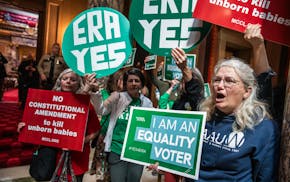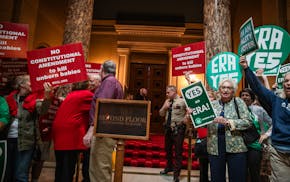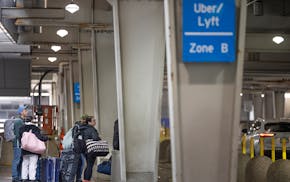I cast my first vote on Nov. 4. As I watched the sea of people celebrate our president-elect in Grant Park, I finally felt the sense of redemption and closure that had eluded me since I took my oath of citizenship just three months ago.
The process of naturalization is different for everyone, given their unique experiences. For me it had been a bittersweet exchange — gaining my American citizenship meant losing my birthright as a citizen of India. Given the weight of this decision, my citizenship ceremony felt like a strange combination of moving theatrics and corny gestures. It capped a yearlong process of applications, appointments and interviews. In each setting, I felt like an observer rather than a full participant, drawn to watching the process that was unfolding in front of me as a group of total strangers shared the hurdles of the American experience.
I started my naturalization voyage in September 2007. I am somewhat embarrassed to admit that after living legally in the United States for 25 years, I was driven to apply for citizenship more out of bureaucratic panic than undying patriotism. Since the immigrant protest marches of the summer of 2006, even the most legal green-card holders felt a foreboding new politics taking hold. I took the plunge and sent my thick set of paperwork and my $750 check to the U.S. Citizenship and Immigration Service (CIS). What I didn't realize at the time was how deeply the experience would challenge my identity and, in the end, renew my faith in America.
My immigration story is not based on personal tragedy or political asylum. My family came to America when I was 8 as part of the Indian brain drain of the 1970s. My parents made the typical move from sparse apartment to sprawling suburban home while I was in elementary school. But along my 12-month citizenship journey, there were many poignant moments that reminded me that I still had much in common with those who more recently came to America.
One such experience occurred last May in Bloomington, where I was greeted by my CIS agent for my naturalization interview. The two Somali women who had come before me had tried his patience. Upon hearing my lack of accent and noting my professorial status, he zipped through my file. He stared at his computer as he rattled off his questions, asking me how many members there were in the U.S. Congress and where the president lived. I was never asked in my interview why I wanted to be an American. Instead my agent asked me more than once the dreaded Cold War question, "Have you ever been a communist?"
I knew the power he held over us. Yet, I cautiously asked him a question of my own: "Do you really ask anyone to name the 13 original colonies?" I had been asking my American-born neighbors and friends this question as I studied for the test and had been surprised to find few that knew the answer. He turned toward me, rather coldly, and answered, "It was the first question I asked this morning." I thought of the two Somali women who had come before me and hoped they had studied. I wondered if he had passed them.
As I stood in line to enter the auditorium for the oath ceremony last August, the last CIS agent I encountered asked me to surrender my green card. This was by far my most valuable piece of property. He threw it into a 2-foot deep cardboard trash box. I peered into that box and saw photograph after photograph looking back at me wearing the "nonsmile" that the biometrics agents insist upon. A strange feeling of vulnerability overcame me. I was still not an American, and now I had no green card.
The 215 of us who filed into federal court that day in Arden Hills represented 54 nations. A man from Laos sat at my right side, a man from Canada on my left. We were told to stand when our native country was called and to wave the small American flag we had been given in our packet. We sat silent, some of us grinning, when the larger-than-life image of President Bush was beamed down to us from the video screen above. He welcomed us and reminded us of our new obligations and rights. One of my lasting memories of that afternoon will be the swarm of middle-aged League of Women Voters' volunteers who eagerly registered us to vote even before we had taken the oath.
In casting my ballot last week and witnessing my candidate rise to victory, I shared a powerful experience with all the other first-time voters this election. During my own "improbable" journey, I gained an unexpected respect for the complexities of the immigrant experience, including the vulnerability felt by most who must navigate the tortuous bureaucratic process without the luxury of my lenses of irony and introspection.
While I took my oath three months ago, it wasn't until election night that I palatably felt the greatness of the American democracy. I can now relinquish any doubts that I have chosen the right moment to become an American.
Roopali Phadke is an assistant professor of environmental studies at Macalester College in St. Paul.

Divestment is easier chanted than done
Pass guardrails for HCMC governance changes

Minnesota needs an ERA that includes gender and reproductive freedom

Legislature must clarify sex, gender before putting an ERA before Minnesota voters
